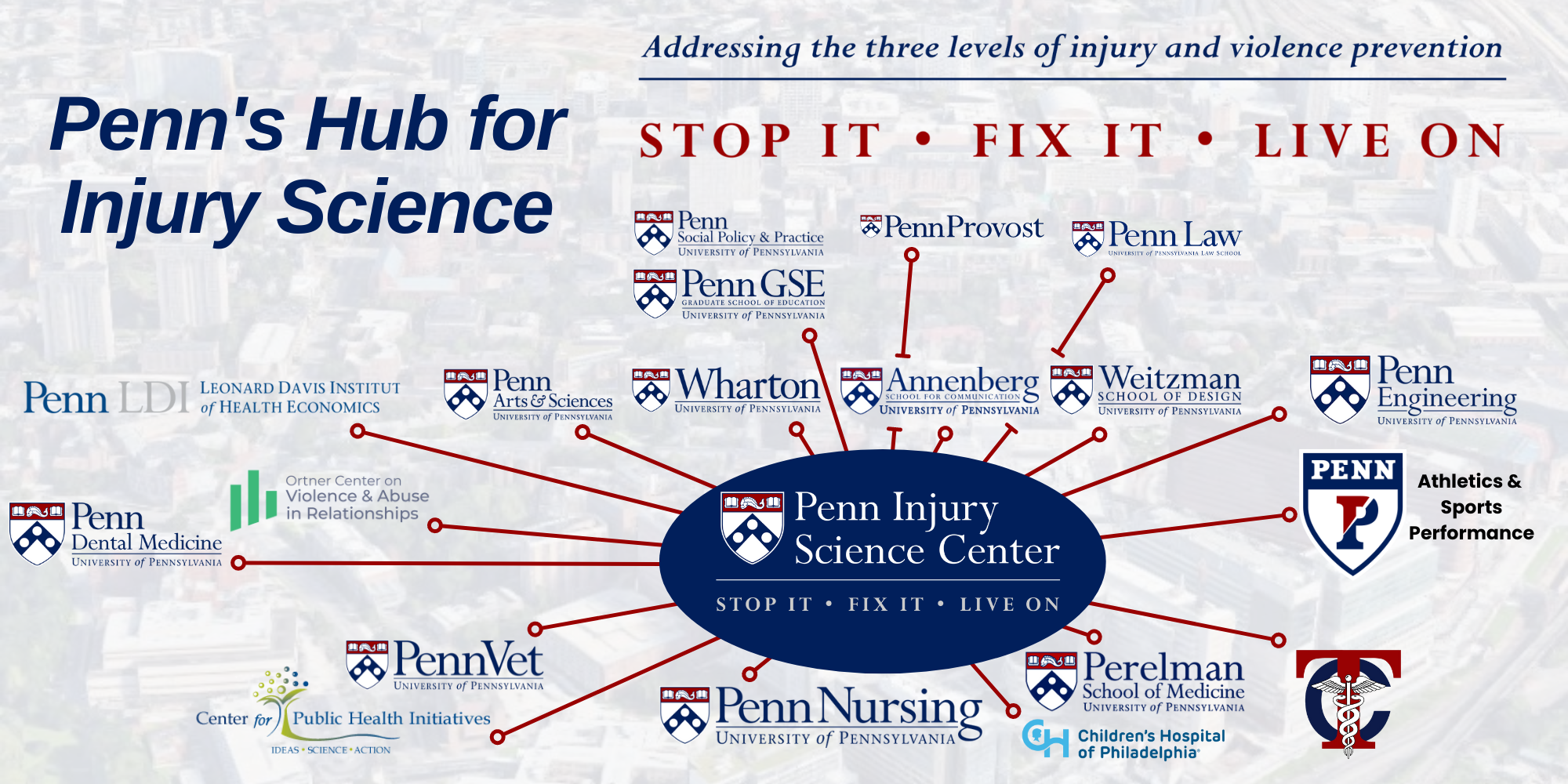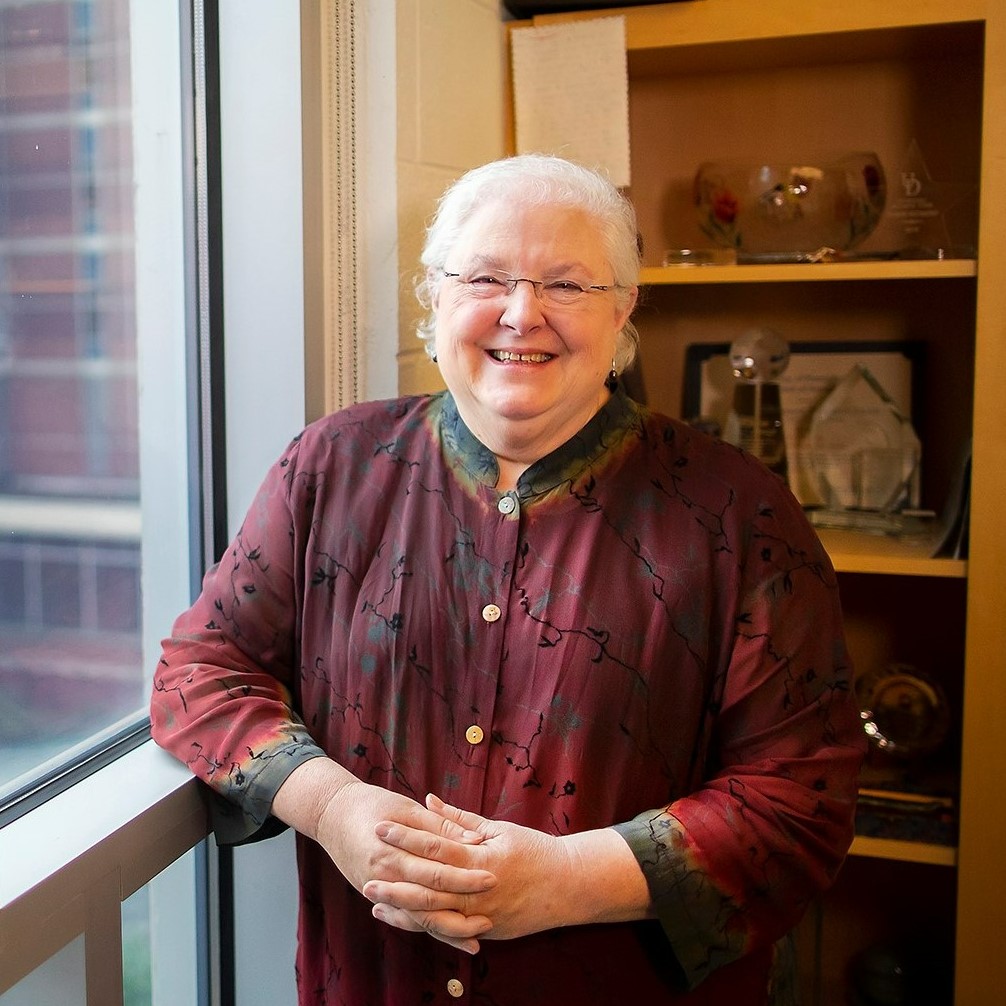About Us
About the Penn Injury Science Center
Funded by a grant from the Centers for Disease Control and Prevention, the Penn Injury Science Center (PISC) brings together university, community, and government partners around intervention programs with the greatest potential for impact. We promote and perform equity-centered, action-oriented research, training, and outreach to reduce injuries, violence, and their impact on people in Philadelphia and around the world.
Originally founded as the Firearm Injury Center at Penn (FICAP) in 1997, PISC has since grown in scope to include opioid and overdose, violence, older adult falls, trauma systems, policy, concussion & traumatic brain injury, road traffic injury, and the physical & social environment. Achieving health equity is a driving factor of our work.
PISC represents a unique partnership of the University of Pennsylvania’s Perelman School of Medicine, the Penn School of Nursing, and the Penn School of Arts and Sciences. The Center brings together faculty, clinician, trainees, and staff from across all 12 Schools of the University, many other research Centers and Institutes, and the Center for Injury Research and Prevention at Children’s Hospital of Philadelphia (CHOP). It has a broad reach, and is inclusive of investigators, trainees, and stakeholders locally, across the region, across the nation, and from other nations as well.

Mission
The mission of the Penn Injury Science Center is to prevent violence and injuries through the highest caliber research, training/education, and outreach.
Vision
The vision of the Penn Injury Science Center is to…
- Promote and conduct equity-centered
actionable injury science research with a
focus on social and structural
determinants - Advance a bidirectional research-to-practice
and policy continuum - Partner with local communities and
policymakers to address the needs of the
vulnerable populations of Philadelphia
disproportionately affected by violence
and injury - Grow the pipeline for the next
generation of rigorous injury scientists and
practitioners

(Above) The Penn Injury Science Center is Penn’s “hub” for injury science, connecting schools, centers, and departments from across the University and Health System to address the primary (Stop It), secondary (Fix It), and tertiary (Live On) levels of injury prevention. The Penn Injury Science Center is depicted as the central “hub” for Injury Science at the University of Pennsylvania. From the Penn Injury Science Center logo in the middle, there are “spokes” that extend out in every direction, showing the connections to institutes, departments, and centers across the University. In this way, the Penn Injury Science Center connects entities across the University for the common goal of reducing injuries, violence, and their impact. Each entity’s logo is shown overlaid atop a background satellite map of campus, demonstrating the location on campus. Across the top of the image reads the Penn Injury Science Center’s slogan: “Stop It. Fix It. Live On.” This represents addressing the three levels of injury and violence prevention.
Stop It. Fix It. Live On.
Our slogan emphasizes our commitment to addressing the three levels (primary, secondary, and tertiary) of injury prevention.
Stop It. Injury and violence does not happen randomly and is not an “accident” as it is sometimes called. Injuries and violence occur in patterns that are a result of many structural and behavioral factors. Our work targets those factors to reduce the frequency and severity of injury, such as changing built environments and promoting protective behaviors.
Fix It. Once injury occurs, it is important to treat it in the most effective way possible. Our work develops, implements, and evaluates new solutions to improve injury outcomes, such as analyzing transport time (from place of injury to trauma center or emergency department intake) and innovative treatment approaches.
Live On. Injuries and violence have a lasting impact. Our goal is to reduce long-term negative impacts experienced by individuals and communities and to promote their recovery. This includes the mental and physical impacts on the individual who was injured as well as the vicarious impacts on family, friends, and the community as a whole.
STOP IT.
Prevent injury and violence.
FIX IT
Right place, right time.
LIVE ON.
Restore lives and communities.
Our Leadership
The Penn Injury Science Center is comprised of academic researchers, clinician scientists, community and non-profit partners, trainees, and staff from a variety of backgrounds and expertise areas. Learn more about our team and meet our current leadership below.

Zachary Meisel, MD, MPH, MA
Center Co-Director & Outreach Core Director
Professor of Emergency Medicine
Department of Emergency Medicine, Perelman School of Medicine at the University of Pennsylvania

Catherine McDonald, PhD, RN
Center Co-Director & Training Core Director
Associate Professor of Nursing
Department of Family and Community Health, School of Nursing at the University of Pennsylvania

Therese Richmond, PhD, RN, FAAN
Research Core Director
Andrea B. Laporte Professor of Nursing
Associate Dean for Research and Innovation, School of Nursing at the University of Pennsylvania


Andrew Belfiglio, MPH
Director of Communications, Penn Injury Science Center

